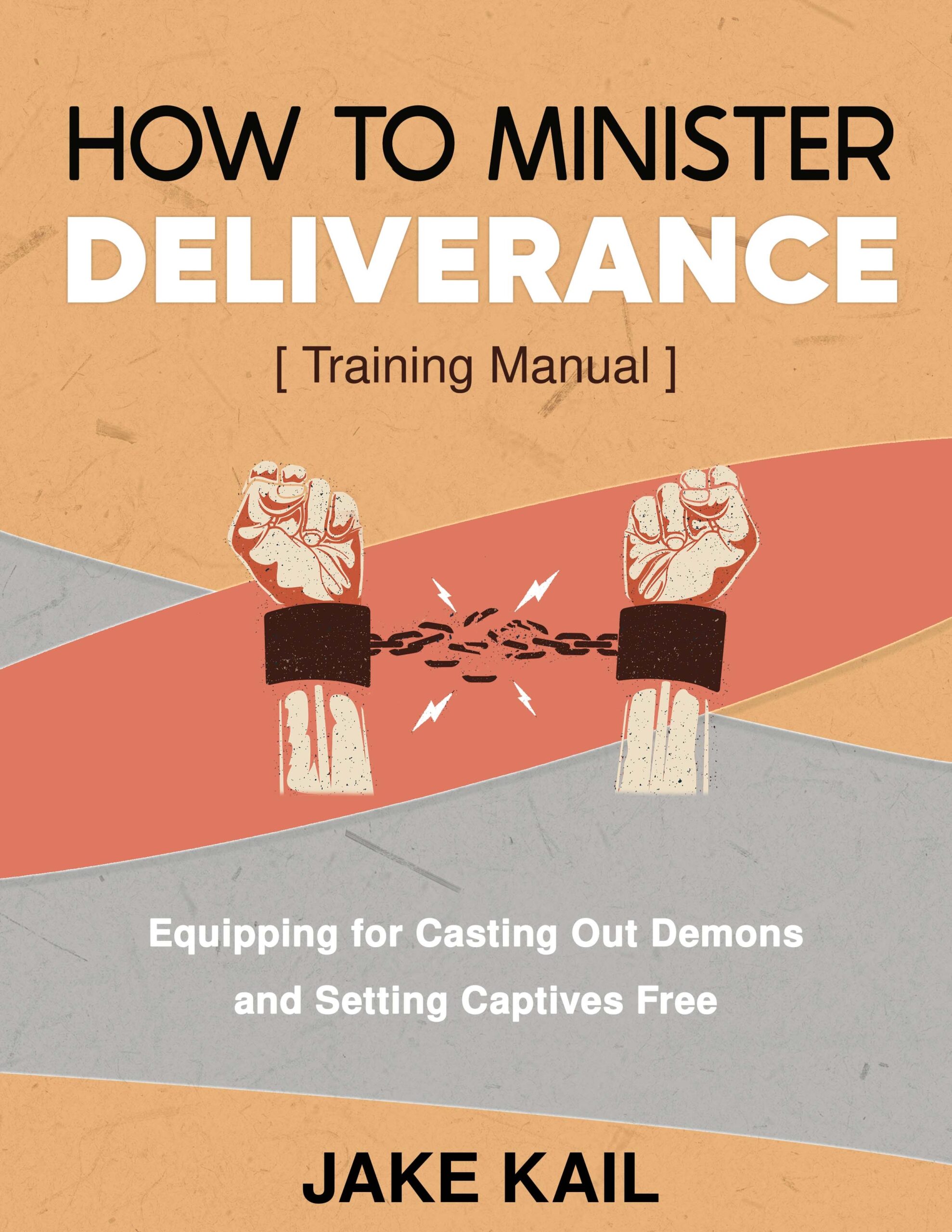
Special Announcement: Online School of Deliverance Starting March 29th!
March 4, 2022
Sermon: Establishing a Kingdom Culture
March 21, 2022
When I train people to minister deliverance, I always emphasize an important truth: deliverance is a ministry of compassion for the oppressed. It is certainly true that we must walk in the authority of the name of Jesus and the power of the Holy Spirit. But we must also carry the heart of God and be motivated by His love. Below is an excerpt from my training manual, How to Minister Deliverance, with some practical points on how we can minister deliverance with compassion:
Something that we should not overlook when walking someone through deliverance is the importance of ministering with respect and compassion for the person being delivered. Jesus exemplifies this for us in Matthew 14:14: “And when Jesus went out He saw a great multitude; and He was moved with compassion for them, and healed their sick.” Jesus moved in tremendous authority and power over sickness and demons, but He did so with great love for the people to whom He ministered.
The ministry of deliverance has the potential to be frightening, confusing, and embarrassing, especially in the case of someone with little or no knowledge of this type of ministry. While we must be ruthless toward demons, we must be compassionate toward people. Following are some practical ways that we can show compassion while ministering deliverance to others.
1. Respect privacy
Jesus dealt with demons publicly on many occasions, and I see no reason why we should not do the same. However, be sensitive that if it is taking more than a few minutes to bring deliverance to someone in a public service, it might be better to move them into a private area and continue ministry in that setting. You do not want the person to become a spectacle or for the whole focus of the meeting to be turned toward the deliverance.
In a private prayer ministry setting, make sure the person knows that it is safe to confess sins or share painful events from the past without having to fear being judged or that the information will be shared with others (unless legally required to be). Be sure to respect the person’s privacy by not sharing sensitive information inappropriately.
I would also encourage you to be sensitive regarding the use of video recording and social media when people are receiving deliverance. It is one thing for a person to share their testimony voluntarily after being set free; it is another thing to have their ministry session broadcast for the world to see.
2. Stay calm
It is important to stay calm and under control throughout deliverance ministry. Though slightly raising your voice and speaking with an authoritative tone is a natural tendency when commanding demons, there is no need to scream or lose your composure. Losing control or getting into a fighting match with demons actually shows a lack of authority. Remaining in a posture of peace demonstrates trust in God and authority over the kingdom of darkness. Staying calm will also help the one receiving prayer to be at peace and will send the signal that everything is going to be okay. Keep in mind that peace is a powerful weapon of spiritual warfare: “And the God of peace will crush Satan under your feet shortly” (Romans 16:20).
When multiple people are praying over an individual, it is best for one person to be clearly in charge of the ministry time. The others may be present to assist, intercede, offer discernment, or step in to pray as the leader directs. But you want to avoid having the whole group trying to cast out the demons at once, which causes confusion and is typically not nearly as effective as having a clear leader.
3. Check in frequently
I make it a practice to regularly check in with the person to see how they are doing and to find out what is happening in them during the prayer time. This reassures them that you care about them and their well-being. It can also be helpful in the process of getting them free. After asking how they are doing in general, I will ask questions such as this: What do you sense happening as I pray? Do you feel like spirits are leaving? Is there anything else that you think we need to specifically pray through?
I have found that it is fairly common for a person receiving prayer for deliverance to have a heightened discernment and sensitivity to the spiritual realm during deliverance. They may report seeing spirits leave, knowing the names of demons that are manifesting, or feeling things take place inside of them throughout the process of deliverance. Pausing to check in with them can be a great help, along with the care it shows for them.
4. Explain what is happening
As part of pausing to check in, it is helpful to explain what is happening during the prayer time. For instance, if the person begins to manifest in some way, explain that it is a normal part of the process and that they need not be alarmed. If they begin to cough as demons are exiting, explain that it is quite common for this to happen as deliverance takes place. Explaining what is happening helps the person feel safe and minimizes confusion; it also helps them engage in the process more, which is important.
Another point of explanation is the area of praying in tongues. I have found this practice to be helpful at times in aiding the process of deliverance, but I do not want it to cause confusion for the person being prayed for. If you intend to pray in tongues during a prayer time, ask the person beforehand if they are familiar with this type of prayer. If not, give a little explanation so that they know what it is and why you are doing it.
5. Don’t give the demons too much attention
The focus of ministry should not be the demons but on Jesus and the person receiving ministry. Deliverance should not be seen as a way to appear spiritual or show off “your anointing.” It is not a spiritual power trip or a thrill to be sought. One of the things that I often tell people is that Jesus is the Deliverer and that He is in charge of their process of restoration and healing. He may use me or others as part of the process, but ultimately it is because of His finished work on the cross and by His Spirit that any of us can have salvation, healing, or deliverance. The goal of all ministry should be to get people more connected to and focused on the Lord. While you may be instrumental in leading a person through deliverance, continually point them to Jesus.
While it is often inevitable that there will be some form of manifestation (if it happened in Jesus’ ministry, it will happen today as well), manifestations should be kept under control. In other words, sometimes a manifestation is a natural part of the process of deliverance; but as much as possible we should not allow manifestations to dominate the prayer time. If a manifestation is getting out of control, you may need to bind the demon and command it to stop manifesting.
I would also advise not to spend time trying to communicate with the demons when they manifest. When you speak to a demon, it should be to command it to leave the person in the name of Jesus. There is only one example of Jesus getting information from a demon which is when He asked the demon in the “Gadarene demoniac” what its name was (see Mark 5:6-13). I have at times done the same thing and found it helpful, but I would not rely on this method as a general rule. I only do it when prompted by the Holy Spirit, which has been very rare. And I would certainly not recommend getting into lengthy conversations with demons.
Click below to purchase your copy:
God is restoring deliverance to the church, but many believers feel intimidated or ill-equipped to cast out demons. Perhaps the only examples they have seen use bizarre, unbiblical, or unhelpful methods. How to Minister Deliverance is a training manual that will help equip and empower you to step into the ministry of deliverance. This manual is not just for church leaders—it is for any believer who wants to begin or grow in ministering deliverance. Make sure to get your copy!




